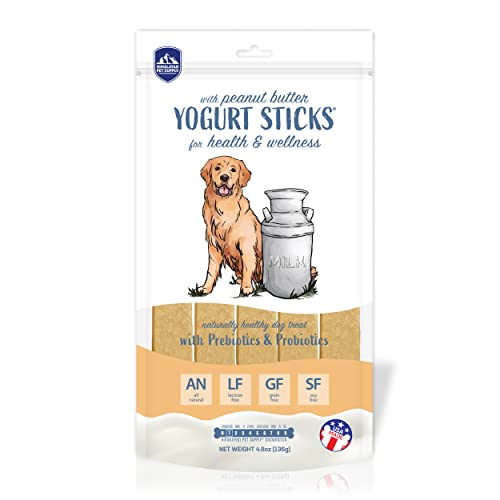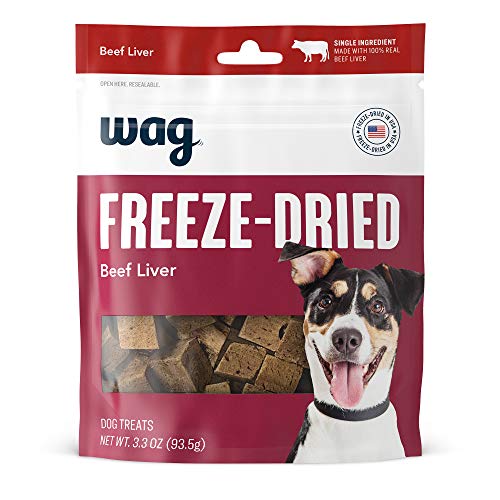
Dogs can actually taste sweet food and find chocolate as appealing as humans. But while the dark treat can be a euphoric delight for us, it can be poisonous to canines.
This doesn’t mean that all dogs get poisoned by chocolate or that a candy bar is enough to kill your pet canine. The dose makes the poison.
A dog’s weight matters most when it comes to chocolate poisoning. Large canines can handle a small amount of chocolate and not get sick. But, smaller breeds could run into serious trouble from the same dose.
Don’t panic though if your dog accidentally ingests chocolate. There are things you can do to make sure the situation doesn’t escalate into severe poisoning.
However, you should treat chocolate as toxic to dogs and should make an effort to keep it away from them. It goes without saying that you should never offer chocolate treats to dogs.
In This Article
- 1 Why chocolate can be harmful to dogs
- 2 How toxic is chocolate for dogs?
- 3 Signs that your dog may be suffering from chocolate poisoning
- 4 Can chocolate kill dogs?
- 5 What to do if your dog eats chocolate: time is of the essence
- 6 Bottom line: Keep chocolate away from dogs
- 7 Safe alternatives: dog-friendly treats
Why chocolate can be harmful to dogs

It may seem tempting to share a bite of your favorite chocolate bar with your furry friend, but doing so can have serious consequences for their health.
Among the many chemical compounds found in dark chocolate and cocoa is theobromine. Formerly known as xantheose, theobromine is a bitter alkaloid compound that acts as a mild stimulant for the human body.
The consumption of theobromine is generally associated with positive effects, such as reduced blood pressure, improved focus and concentration, and enhanced mood.
That’s in humans. In dogs, theobromine, as well as caffeine, raises the heart rate and can overstimulate the nervous system.
Because dogs can’t break down theobromine as well as humans can, the compound is toxic to dogs. On this note, the same is true for cats as well.
“Chocolate has caffeine and theobromine in it, which is toxic to dogs,” said Dr. Katrina Warren, an Australian veterinarian.
“The chocolate you need to worry about the most is the dark chocolate and the cooking chocolate, and milk chocolate can be a problem for little dogs,” she explained.
How toxic is chocolate for dogs?

Mild symptoms of chocolate toxicity occur when a canine consumes 20 mg of theobromine per kilogram per body weight. Cardiac symptoms occur at around 40 to 50 mg/kg and dangerous seizures occur at doses greater than 60 mg/kg.
This explains why a candy bar may cause a chihuahua (average weight 2 kg) to run in circles while Great Dane (average weight 70 kg) might feel just fine.
Darker, purer varieties of chocolate tend to be the most dangerous because they contain the highest concentration of theobromine. According to the USDA nutrient database, various chocolate/cocoa products contain the following amounts of theobromine per 100 grams;
- Unsweetened cocoa powder: 2634 mg;
- Baking chocolate (unsweetened): 1297 mg;
- Dark chocolate (70% cocoa): 802 mg;
- Mars Twix (twin bar): 39.9 mg;
- White chocolate: 0 mg;
As a rule of thumb, chocolate poisoning in dogs generally occurs after the ingestion of 3.5g of dark chocolate for every 1kg they weigh, or 14g of milk chocolate for every kilogram. White chocolate contains very little theobromine and is less likely to cause severe toxicity.
Signs that your dog may be suffering from chocolate poisoning
When a dog ingests chocolate, theobromine binds to receptors in their body, affecting their central nervous system and cardiovascular system.
Chocolate poisoning mainly affects the heart, central nervous system, and kidneys. The symptoms of theobromine toxicity usually appear within 6 to 12 hours after your dog eats too much chocolate and may last up to 72 hours. These include:
- vomiting,
- diarrhea,
- restlessness,
- increased urination,
- tremors,
- elevated or abnormal heart rate,
- seizures,
- and in extreme cases collapse and death.
The severity of these symptoms depends on the amount and type of chocolate consumed, as well as the individual dog’s sensitivity.
Can chocolate kill dogs?
In short, yes. However, fatalities in dogs due to chocolate poisoning are very rare. According to the Veterinary Poisons Information Service from the U.S., out of 1,000 dog chocolate toxicity cases recorded in its database, only five dogs died.
What to do if your dog eats chocolate: time is of the essence

If you caught your dog eating chocolate or you suspect this may have happened, it is best to call your veterinarian and ask for advice on how to proceed going forward.
It is vital that you act fast. Don’t wait for symptoms to appear; contact your veterinarian immediately. Provide them with essential information such as the type of chocolate, the quantity consumed, and your dog’s weight. They will be able to assess the situation and guide you on the necessary steps to take.
Based on your dog’s size and the amount and kind of chocolate ingested, the veterinarian may recommend monitoring your dog for any symptoms of poisoning or ask that you immediately come to the clinic.
If there are good reasons to believe potentially dangerous chocolate poisoning may be imminent, and as long as your pet consumed the chocolate less than two hours ago, the veterinarian may induce vomiting.
Sometimes, the dog may be given doses of activated charcoal, which helps to flush toxins out of the body before they are absorbed into the bloodstream.
In very extreme cases of poisoning, the veterinarian might administer medications and/or intravenous fluids to provide additional treatment.
Bottom line: Keep chocolate away from dogs
There’s no reason to believe chocolate isn’t as tasty to dogs as it is to humans. Unfortunately, many dog owners are ignorant of the fact that chocolate can poison their pets and intentionally offer chocolate snacks as a treat.
Usually, this isn’t a problem for very large breeds when they ingest small amounts of chocolate, but smaller dogs can suffer greatly and even die in extreme cases due to theobromine poisoning.
Prevention is always better than a cure, especially when it comes to the health and safety of our furry friends. To avoid the risks associated with chocolate ingestion, it’s crucial to keep all chocolate products well out of your dog’s reach.
Remember, dogs are notorious scavengers and can be quite resourceful when it comes to getting their paws on a tasty treat.
If you are aware that chocolate can poison your pet, you have no excuse to keep sweets accessible. It is advisable to keep any chocolate items on a high shelf, preferably in a closed-door pantry. Guests and children should be kindly reminded that chocolate is bad for dogs and that they shouldn’t offer chocolate treats regardless of how much the pet begs for them.
“When vets provide emergency treatment for chocolate ingestion, we typically hear that children shared their candy with their beloved pet,” says Dr. Leticia Fanucchi, Clinical Assistant Professor of Veterinary Clinical Sciences at Oklahoma State University.
Most chocolate poisoning in dogs occurs around major holidays such as Christmas, Easter, or Valentine’s Day, so these are times when you should be extra careful.
Safe alternatives: dog-friendly treats
If you’re looking to treat your dog, there are plenty of safe alternatives available that won’t pose a risk to their health. Consider offering your canine companion dog-friendly treats specifically formulated for their dietary needs. There are numerous options on the market, ranging from chewable biscuits to specially crafted canine desserts. Not only will these treats keep your dog happy, but they will also provide them with the nutrition they require.
FAQ about chocolate and dogs
es, all dogs can be affected by chocolate toxicity. However, the severity of the reaction depends on factors such as the dog’s size, the type of chocolate consumed, and the amount ingested. Smaller dogs are more susceptible to the toxic effects of chocolate compared to larger breeds.
If you suspect that your dog has ingested chocolate, it is crucial to take immediate action. Contact your veterinarian right away and provide them with essential information such as the type of chocolate, the quantity consumed, and your dog’s weight. They will be able to assess the situation and advise you on the necessary steps to take.
The onset of symptoms can vary depending on factors such as the dog’s size, the type of chocolate consumed, and the amount ingested. In some cases, symptoms may appear within a few hours, while in others, it may take up to 24 hours for signs of chocolate poisoning to manifest. However, it’s important to note that theobromine can be rapidly absorbed into the bloodstream, so it’s crucial to seek veterinary care as soon as possible.
While white chocolate contains very little theobromine compared to other types of chocolate, it can still pose risks to dogs if consumed in large quantities. It is best to avoid giving any kind of chocolate, including white chocolate, to your dog, as even small amounts can cause gastrointestinal upset or other adverse reactions.
The long-term effects of chocolate poisoning can vary depending on the severity of the toxicity and the promptness of treatment. In mild cases, dogs may recover fully with no lasting effects. However, in severe cases, where a significant amount of chocolate has been ingested or if treatment is delayed, dogs may experience organ damage or even death.
Yes, there are plenty of safe alternatives to chocolate for dogs. Many pet stores offer a wide variety of dog-friendly treats that are specifically formulated to meet their dietary needs. These treats are a safer option and provide a tasty and nutritious alternative to chocolate.
Yes, chocolate poisoning can be fatal for dogs, especially if a significant amount of chocolate is consumed or if treatment is delayed. Theobromine, the toxic component in chocolate, affects a dog’s central nervous system and cardiovascular system. In severe cases, it can lead to seizures, coma, and even death.
While all dogs can be affected by chocolate toxicity, some breeds may be more sensitive to theobromine than others. Generally, smaller breeds tend to be more susceptible due to their smaller size and metabolism. However, it is important to note that every individual dog is different, and the reaction to chocolate can vary even within the same breed.
Chocolate poisoning should not be treated at home without consulting a veterinarian first. Theobromine toxicity can have severe consequences for a dog’s health, and professional medical intervention is necessary. It is always best to seek immediate veterinary care to ensure the proper diagnosis and treatment.
Chocolate-flavored dog treats that are specifically formulated for dogs are generally safe to consume. These treats are made without theobromine and are designed to provide a chocolate-like taste without the associated risks. However, it is essential to carefully read the labels and choose treats that are specifically labeled as safe and intended for dogs.
Yes, there are several other foods and ingredients that can be toxic to dogs. Some common examples include grapes and raisins, onions and garlic, alcohol, caffeine, xylitol (a sugar substitute), and certain types of nuts, such as macadamia nuts. It is important to educate yourself about these potential hazards and keep them out of your dog’s reach.
Was this helpful?









